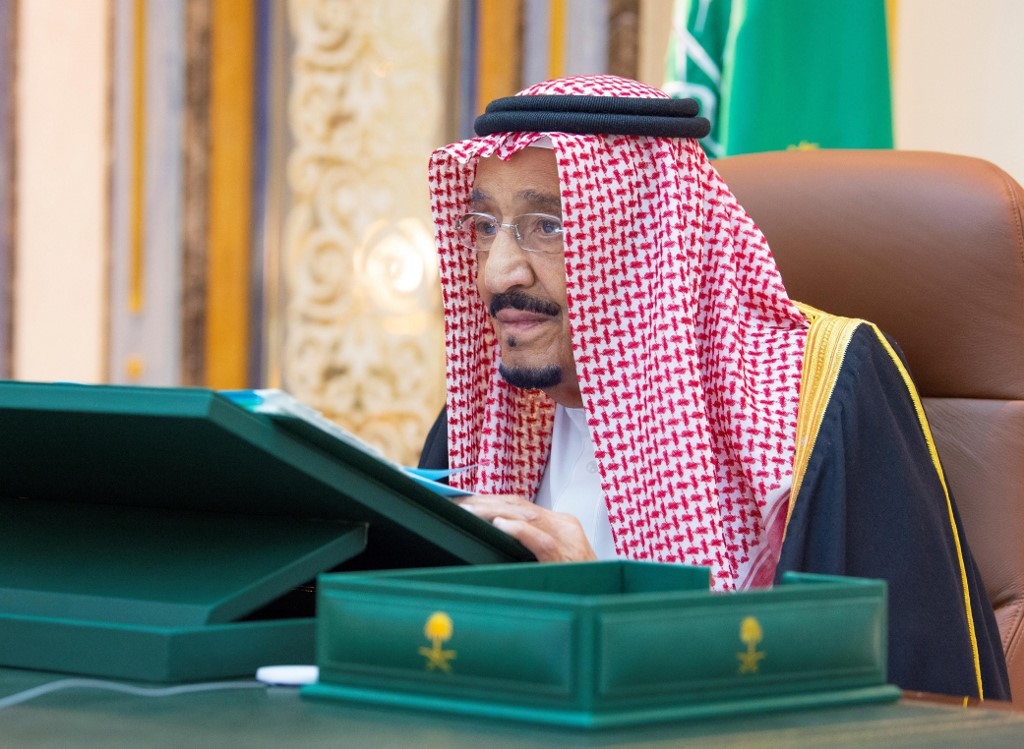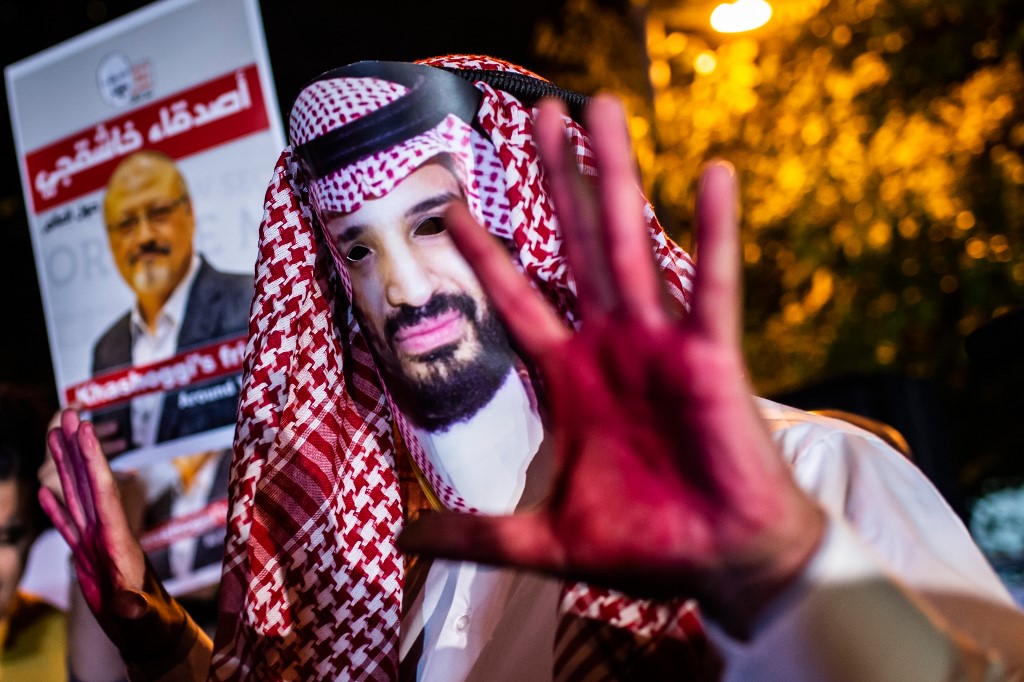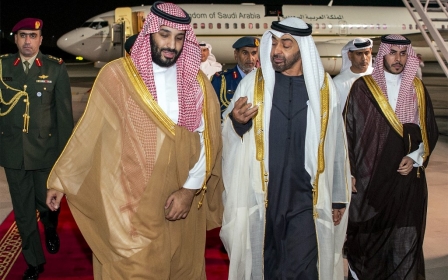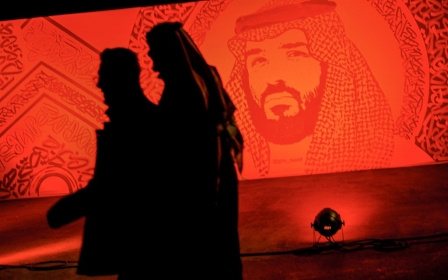King Salman's legacy: Dreams of regional hegemony end in turmoil

Salman’s kingdom aspired to become a regional hegemonic power in the Arab world. The dream was thwarted as conciliatory diplomacy gradually gave way to ill-planned military adventures, intrigues and flexing muscles over neighbouring states.
None of the kingdom’s regional policies yielded the victories that the king and his son expected - namely, the crowning of the country as the unchallenged arbiter of Arab affairs. Over the last five years, regional fires have proved to be more devastating and harder to put out than anticipated.
With fewer resources available to buy the loyalty of old allies, Salman's kingdom struggled to maintain its stature, even among its most loyal Arab allies
For the first time since the Gulf War broke out in 1990, the kingdom has witnessed a deterioration of its own security, triggered by the king’s miscalculations about his anticipated swift defeat of historical and new enemies.
Unprecedented spending on arms proved to be not only a waste of dwindling oil revenues, but also an embarrassment that exposed the fragility of the kingdom’s security capabilities.
The country’s own far-flung territories, oil fields and major cities saw missiles and drones fall on them without the prospect of stopping the humiliation.
Such unexpected incidents were a direct result of the kingdom’s failure to reach conciliation with Iran and end the Yemen war, which King Salman and his son started in 2015. While in military terms, such sporadic attacks on the kingdom did not result in total devastation, they proved seriously damaging to the leadership’s credentials.
The aspiring hegemonic power came under attack in retaliation for its own war on the poorest country in the Arab world, namely Yemen. With all the might of Western weapons, jet fighters and military technology, Salman’s kingdom failed to secure its own borders and airspace.
Instead of starting serious negotiations with Iran to reach a modus vivendi and end decades of hostility, the leadership chose to perpetuate the conflict. Salman opted for indirect confrontation with Iran not only in Yemen, but also in Lebanon and Syria. Under Salman’s leadership, Iranian influence spread rather than shrunk in the old Arab territories where it had already been on the rise, including Iraq.
Targeting Qatar and Turkey
In the Gulf, Salman triggered the fragmentation of the Gulf Cooperation Council when he ostracised Qatar and encouraged other Gulf states to follow suit, hoping that sanctions would precipitate the fall of the small country. But his plans to topple the Qatari emir and install a puppet ruler across the border failed.
Salman also succeeded in creating new enemies when he antagonised Turkey, where his son’s agents committed what can be dubbed the crime of the century: assassinating journalist Jamal Khashoggi at the Saudi consulate in Istanbul.
As Turkish media painted a horrific picture of the last hours of a journalist struggling to stay alive under the knives of the assassins, Salman’s kingdom was cornered as a rogue state willing to commit brutal, horrific crimes of unprecedented scope. Saudi Arabia’s reputation as a benevolent monarchy was destroyed in a single act, alerting the international community to a new style of rogue regime behaviour under the king and his son.
Elsewhere in the Arab region, the king sought to consolidate old alliances with countries such as Bahrain, Egypt, Jordan and Morocco. But such efforts fell short of guaranteeing security. States refused to whole-heartedly support Saudi military efforts in Yemen, and preferred to pursue independent regional policies.
With fewer resources available to buy the loyalty of old allies, Salman’s kingdom struggled to maintain its stature, even among its most loyal Arab allies.
Abandoning Palestinians
Salman’s kingdom violated an age-old taboo when it launched new diplomatic channels with Israel, seeking military and technological expertise to counter its own rising insecurity and vulnerability. Such problematic overtures exposed how far the Riyadh leadership was willing to go under regional pressure.
Salman’s kingdom will go down in history as the one country that had historically pledged to support Palestinians, but quickly reversed this policy in favour of pragmatic and ad hoc relations with the very power causing their displacement and suffering. Allegedly a broker for peace, Saudi Arabia demonstrated that it really didn’t care about Palestinians and their plight.
Salman chose to pursue a dangerous path that neither brought peace nor solved the Israeli-Palestinian conflict. The Saudis lost not only the initiative to play a major role in ending this conflict, but also the credibility and impartiality of an honest peace broker.
The regional policies of Salman’s kingdom have stumbled and contributed to creating a vacuum in the Arab world. This world is now more fragmented and disoriented than ever before. Riyadh will never be crowned as the Arab capital where major decisions are taken, and where other Arab states are inclined to show deference. It stands alone as it struggles to lead a region in turmoil.
The kingdom has never experienced such a drastic retreat of its influence in the Arab world as it has under Salman’s leadership. His kingdom is now considered a predatory power struggling to consolidate its credentials and reputation, having more enemies than friends.
The views expressed in this article belong to the author and do not necessarily reflect the editorial policy of Middle East Eye.
Read part one of this three-part series here.
This article is available in French on Middle East Eye French edition.
Middle East Eye propose une couverture et une analyse indépendantes et incomparables du Moyen-Orient, de l’Afrique du Nord et d’autres régions du monde. Pour en savoir plus sur la reprise de ce contenu et les frais qui s’appliquent, veuillez remplir ce formulaire [en anglais]. Pour en savoir plus sur MEE, cliquez ici [en anglais].







